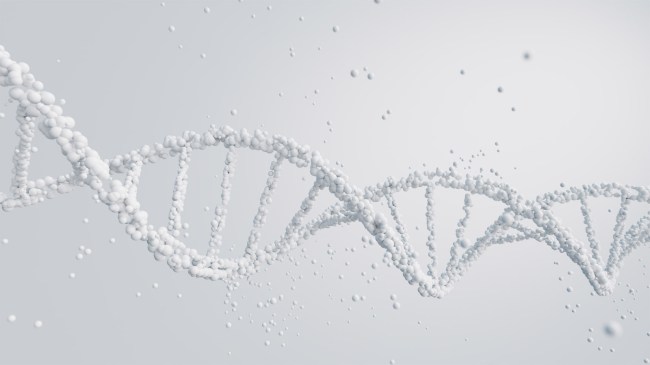iStockphoto

Audio By Carbonatix
Scientists with the Synthetic Human Genome Project are trying to create artificial human DNA from scratch, leading to numerous ethical concerns. While the project could lead to revolutionary new treatments for major illnesses, the concept of synthesizing a human genome – the building blocks of human life – has long been considered taboo in many scientific circles.
Last week, the Wellcome Trust, the world’s largest medical charity, donated £10 million (almost $14 million) to the project “to develop the foundational tools, technology and methods to enable researchers to one day synthesize genomes.”
“While this is a huge challenge, the potential benefits are profound,” the Wellcome Trust wrote in a press release announcing the donation. “A fully synthetic human genome – and the research to create it – would transform our understanding of health and disease.
“It could one day lead to new medical treatments, like designer cell-based therapies and virus-resistant tissue transplantation. It could also help us defend biodiversity and food security, such as by engineering plant species to withstand climate extremes.”
That all sounds well and good. However, there are many ethical concerns with a project involving DNA that many consider to be “playing God.” As the BBC pointed out, “it could lead to designer babies or unforeseen changes for future generations.”
“We like to think that all scientists are there to do good, but the science can be repurposed to do harm and for warfare,” Dr. Pat Thomas, director of the campaign group Beyond GM told the BBC.
Tell that to all of the artificial intelligence and robotics scientists.
“If we manage to create synthetic body parts or even synthetic people, then who owns them. And who owns the data from these creations?” Dr. Thomas added.
Last year, scientists in the Netherlands published a research paper in which they explained how they are attempting to build synthetic life forms. They claimed to be trying to refine natural evolution.
“The genie is out of the bottle,” Professor Bill Earnshaw, a genetic scientist at Edinburgh University who designed a method for creating artificial human chromosomes, told the BBC. “We could have a set of restrictions now, but if an organization who has access to appropriate machinery decided to start synthesizing anything, I don’t think we could stop them.”
Content shared from brobible.com.

